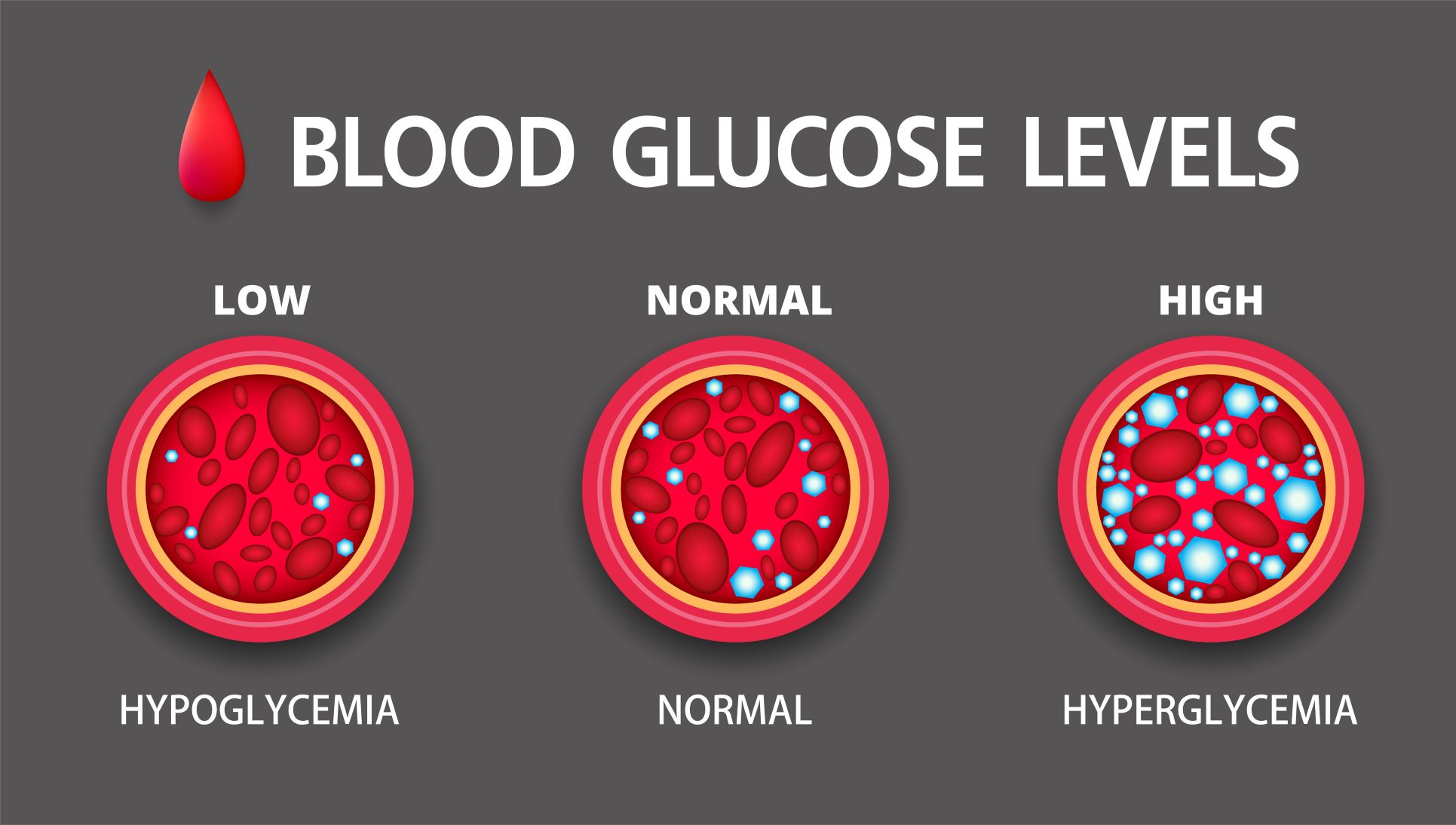Hyperglycemia vs. hypoglycemia

Blood sugar, or glucose, is essential for our bodies, providing the energy we need to function. However, maintaining the right balance is crucial. Let's explore the differences between hypoglycemia and hyperglycemia, and how they affect our health.
What is blood sugar?
First, let's talk about what blood sugar is. Blood sugar, or glucose, is the fuel that powers our bodies, just like gasoline powers a car. We get this fuel from the food we eat, especially from sugary and starchy foods like fruits, bread, and pasta. Our bodies use this sugar to give us energy throughout the day.
Hypoglycemia (low blood sugar)
Hypoglycemia happens when there isn't enough sugar in the blood. Imagine your body is a car, and the fuel tank is almost empty. When this happens, the car can't run properly. Similarly, when our blood sugar is too low, our bodies can't function well.
Hypoglycemia symptoms
Hypoglycemia occurs when blood sugar levels drop too low. This can lead to various symptoms, including:
- Shakiness or dizziness
- Excessive sweating
- Intense hunger
- Headaches
- Fatigue or weakness
When experiencing these symptoms, it's important to consume something sugary to quickly raise blood sugar levels.
Hyperglycemia (high blood sugar)
On the other hand, hyperglycemia happens when there's too much sugar in the blood. Imagine your body is a car again, but this time, the fuel tank is overflowing. When there's too much fuel, it can cause problems for the car. Similarly, too much sugar in our blood can cause issues for our bodies.
Hyperglycemia symptoms
Hyperglycemia happens when blood sugar levels are too high. Symptoms of hyperglycemia include:
- Increased thirst
- Frequent urination
- Fatigue
- Blurred vision
- Higher susceptibility to infections
Managing hyperglycemia involves monitoring blood sugar levels and following medical advice to bring them back to a healthy range.
Causes and management
Both hypoglycemia and hyperglycemia are often associated with diabetes, a condition where the body struggles to regulate blood sugar levels. People with diabetes need to be vigilant about maintaining their blood sugar to stay within a healthy range.
Tips for balanced blood sugar levels
Here are some strategies to help maintain balanced blood sugar levels:
- Eat regular meals: Consistent mealtimes help keep blood sugar levels stable.
- Choose healthy foods: A balanced diet of fruits, vegetables, whole grains, and proteins supports healthy blood sugar levels.
- Exercise regularly: Physical activity helps the body use glucose more effectively.
- Monitor blood sugar levels: Regular monitoring is crucial for people with diabetes to ensure their levels remain within a healthy range.
- Follow medical advice: Healthcare professionals provide essential guidance on managing blood sugar levels effectively.
Understanding hypoglycemia and hyperglycemia and the differences between the two is important for keeping our bodies healthy and full of energy. Remember, it's all about balance — keeping our blood sugar levels not too low and not too high, just like keeping a car's fuel tank at the right level. By eating well, staying active, and following professional medical advice, we can keep our bodies running smoothly and continue enjoying all the fun activities we love. Healthcare professionals provide essential guidance on managing blood sugar levels effectively, and will help develop a plan you can follow when episodes of hyperglycemia and hypoglycemia happen.



